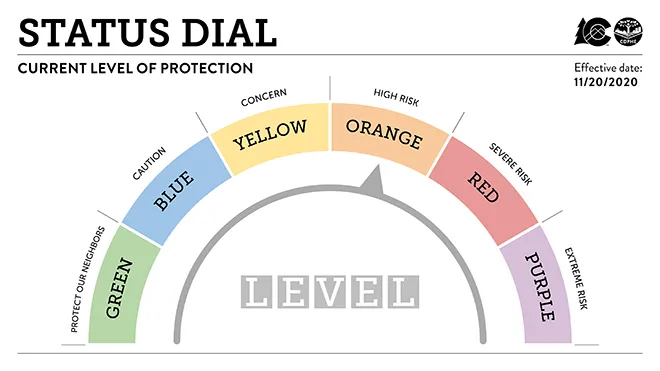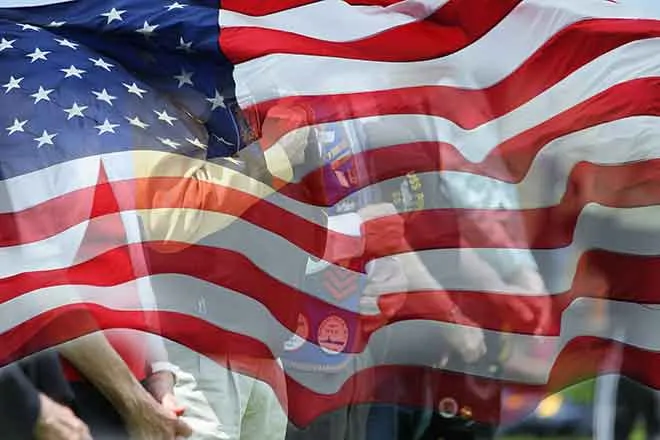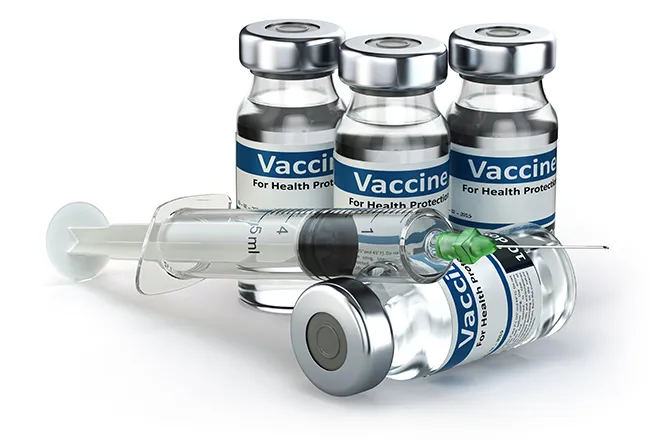
Colorado businesses struggle amid uncertainty of fluctuating tariffs
Colorado small businesses from various sectors have made changes to their operations and even lost customers as a result of uncertainty around Trump administration tariffs.
Grady Cope, CEO of Reata Engineering and Machine Works, a Colorado-based manufacturing company, said his company spent most of last year working to bring a Canadian customer on board. But in February, that customer said it would stop working with Reata because it was their only U.S.-based vendor, and “our people would just be really upset if we were buying from a U.S. vendor.”
“So they’re gone after a year’s worth of work,” Cope said at a press conference Tuesday with U.S. Senator John Hickenlooper of Colorado and other small business leaders.

Colorado Senator and former Governor John Hickenlooper
Many of the materials used to make Reata’s products are not made in the U.S., Cope said. The company also ships parts to customers all over the world, with two of its biggest customers in Germany and the United Kingdom.
“One of the things that has truly surprised all of us is that the inconsistency of we-don’t-know-where-the-tariffs-are-from-day-to-day is causing many of our customers to put orders on hold,” Cope said. “Everybody’s waiting for some stabilization and normalcy.”
President Donald Trump has issued executive orders to implement tariffs that involve every country in the world, including those with which the U.S. conducts extensive trade, such as Canada, Mexico and China. He has said trade deficits are a national emergency, and part of his goal is to force more companies to manufacture products in the U.S. But he has repeatedly changed course on tariff policy.
Democratic attorneys general, including Colorado Attorney General Phil Weiser, have sued the administration saying tariffs are the purview of Congress, not the president.
All these tariffs, in one way or another, they’re not bringing manufacturing back to this country ... What they’re doing is putting an unbearable burden on small businesses like we see here.
Hickenlooper said people well versed in economics tell him that “tariffs have never worked” except in specific situations. He said all tariffs do is create “a level of uncertainty that is almost untenable” and prevents businesses from growing and maintaining supply chain relationships.
© wildpixel - iStock-2189862167
“All these tariffs, in one way or another, they’re not bringing manufacturing back to this country,” Hickenlooper said. “What they’re doing is putting an unbearable burden on small businesses like we see here.”
Hickenlooper toured 4 Noses Brewing Company in Denver before hosting the press conference there with local business leaders. He sits on the Senate Small Business and Entrepreneurship Committee. He is running for reelection in 2026.
Jack Caporal, trade policy chair at the World Trade Center Denver, said trade is an “engine of growth” in Colorado, as 1 in 5 jobs in the state is supported by trade, and gives Colorado consumers a choice on how and where to spend their money. He said tariffs are “aggressive taxes” that small businesses “have the hardest time absorbing the cost of.”
“When there are trade issues that ought to be resolved to open that market access for Colorado businesses, the approach should be one that’s surgical and well thought out and well intentioned … Colorado businesses shouldn’t be caught in the crossfire of unnecessary trade wars that raise costs for consumers and businesses,” Caporal said.
Caporal said the uncertainty and the “whiplash” that comes with changing tariff policies prompts other countries “to become less reliant on the U.S. market” and to do business outside of the U.S. He said it also makes it harder for American businesses to enter those markets.
Jeremy Petersen, CEO of Identity Pet Nutrition, said while his business is headquartered in Colorado, all of its products are made in Canada because the U.S. had “no available production to create the quality of product that we wanted to create for pets.” During the COVID-19 pandemic, the business tried to bring manufacturing into the U.S., but it is not possible in the U.S. to achieve the quality the company wants, he said.
While Identity’s products have a “made in Canada” label and the country was the second top retail market last year for the company, Petersen said Canada is now his worst market.
“Despite being Canadian made, they know we’re U.S.-owned, and so the boycott is on,” Petersen said.
Petersen said the company has also seen panic buying worse than it saw during the pandemic. It will be increasing its pricing by 6 percent on June 1 because of uncertainty of how tariffs will change. He said this has been “the most difficult year” of his professional career because of the uncertainty that comes with fluctuating tariffs.
“It’d be really nice if the president could just put this all on the back burner and recognize that we can’t exist solely with products created in America,” Petersen said. “We’ve always been a land of opportunity, and a land of small businesses and making it easier for small business owners, and now here at the flip of a switch this year, that’s all threatened.”

















